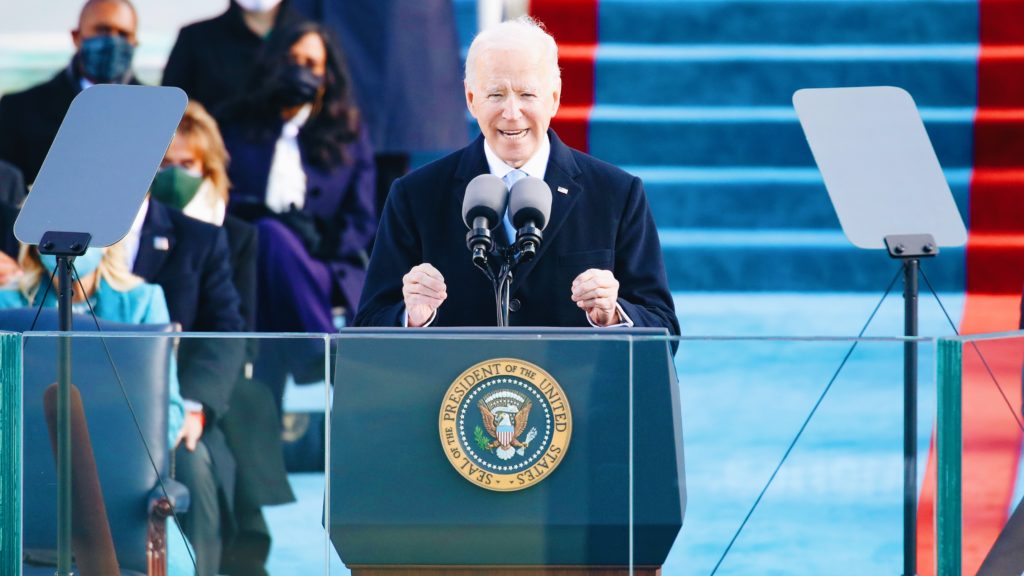(Updated February 19, 2021) | The U.S. has officially rejoined the Paris Agreement.
On January 20, his first day in office, President Biden signed an executive order kickstarting the 30-day process to reenter the global climate pact. The action represents the intention to reverse one of former president Donald Trump’s environmentally destructive policies.
In June 2017, Trump announced that the U.S. would be withdrawing from the Paris Agreement. Due to UN regulations, the order didn’t take effect until late 2020.
The Paris Agreement—a legally binding international treaty—was adopted in December 2015 and was formally entered into force in November 2016. According to the United Nations (UN), the goal of the treaty was to reduce global greenhouse gas emissions. It also aims to limit increases in temperature to well below two degrees Celsius, preferably limiting the increase to 1.5 degrees.
The nation’s return to the Paris Agreement will help the U.S. reduce its climate pollution. It will also strengthen its commitment to combating the climate crisis.
Biden plans to host a climate summit of world leaders on Earth Day, April 22, where he will present the U.S.’s goal for reductions of carbon emissions by 2030.
Alok Sharma, the President of 26th United Nations Climate Change Conference, wrote in an op-ed for CNN that he looks: “forward to working as a matter of urgency with President Biden’s administration and governments around the world, to deliver decisive climate action.”
The U.S. Rejoins Paris Agreement
Per capita, the U.S. is one of the largest producers of greenhouse gas emissions, second to China.
Back in 2017, Trump claimed the Paris climate accord would “undermine the economy.” He said it would cost the U.S. nearly $3 trillion in lost gross domestic product and 6.5 million jobs. “The bottom line is that the Paris accord is very unfair at the highest level to the United States,” Trump said in a statement.
However, in 2019, UN scientists warned that just over a decade was left to stop irreversible climate change damage.
“We are the last generation that can prevent irreparable damage to our planet,” General Assembly President María Fernanda Espinosa Garcés of Ecuador said at a General Assembly meeting. “Climate justice is intergenerational justice.”
President Biden’s campaign promised the U.S would achieve a 100 percent clean energy economy. It also outlined reaching net-zero emission no later than 2050.
President Biden will review other climate policies enacted during the Trump administration. The administration’s rollback of several environmental regulations was aimed at promoting fossil fuel development.
The review includes rescinding the Keystone XL pipeline permit. The administration will establish a temporary moratorium on oil and gas drilling in the Arctic. President Biden will also review the Trump administration’s rollback of endangered species protections. And he will address the weakening of drinking water and oil and gas emissions standards.
“We know rejoining [Paris] won’t be enough, but along with strong domestic action, which this executive order kicks off, it is going to be an important step for the United States to regain and strengthen its leadership opportunities,” Gina McCarthy, President Biden’s national climate advisor, said in a statement.


